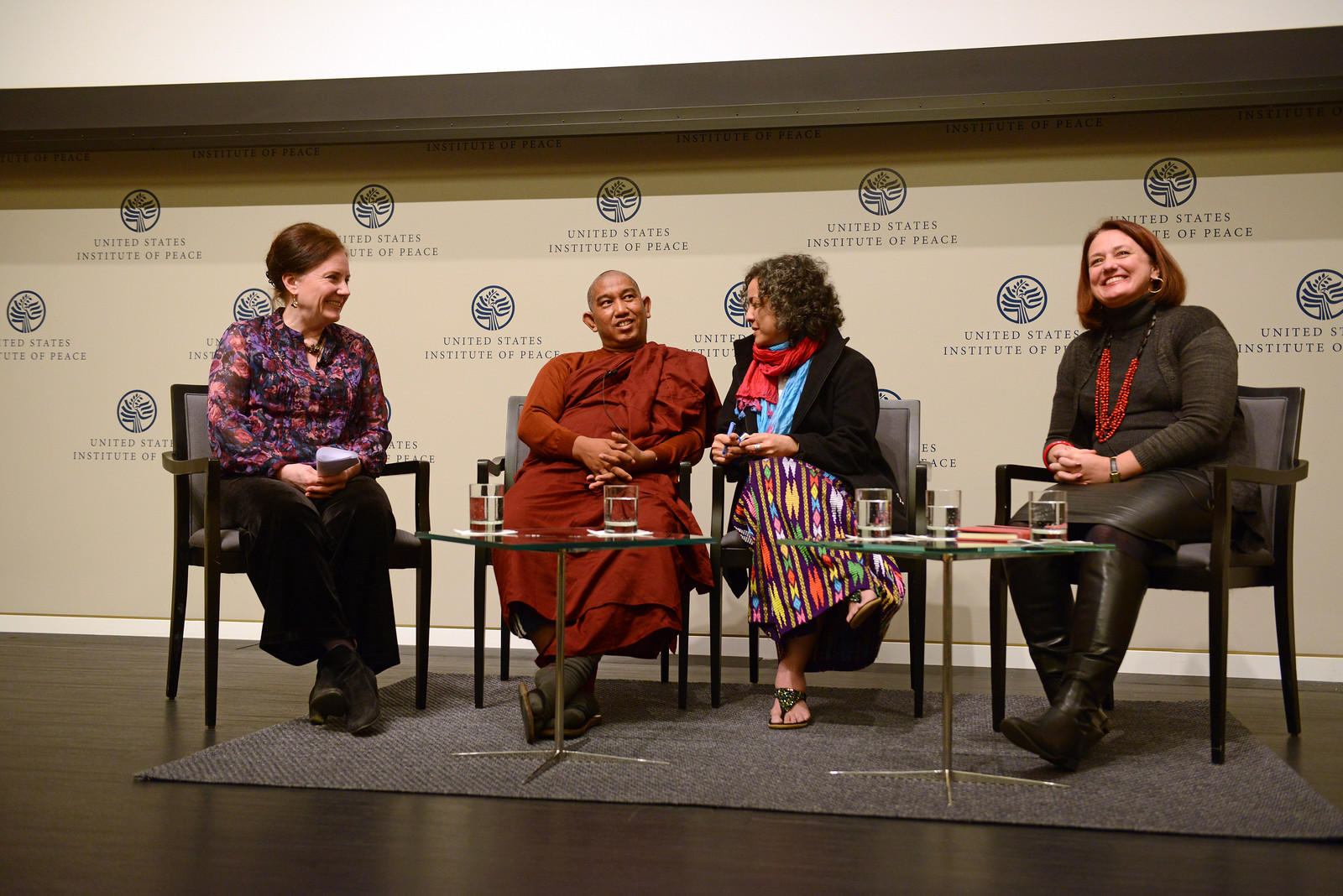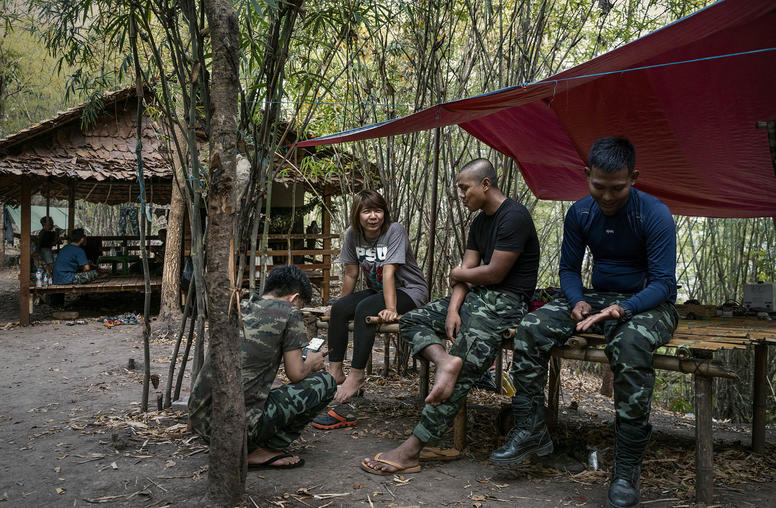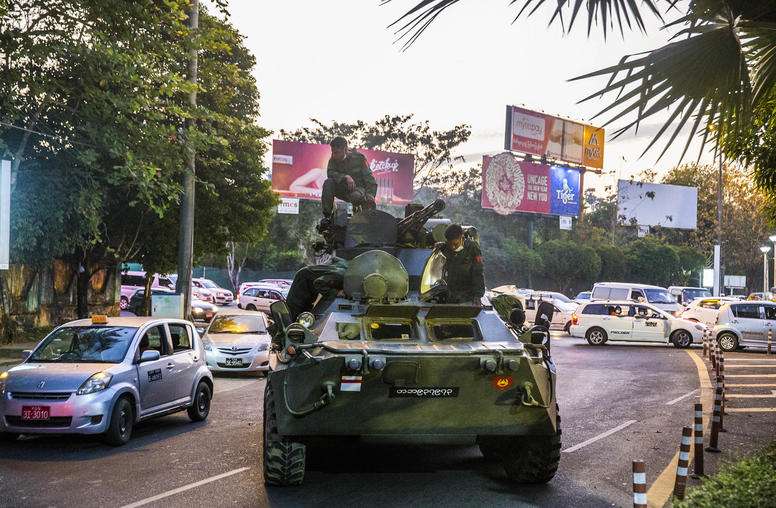Burma’s Peace Potential: Portraits of Diversity
A Film Launch Event
Every day in Burma, monks, doctors, teachers, even a popular reggae singer from Yangon, set examples of unity and cooperation, in contrast to headlines about violence between Buddhists and Muslims. On April 9, the U.S. Institute of Peace, in partnership with the Centre for Peace and Conflict Studies, held a screening of a film series highlighting such stories, Portraits of Diversity, followed by a discussion of how these examples can inform support for the country’s transition.

The Centre for Peace and Conflict Studies commissioned the series of video portraits, directed by Kannan Arunasalam in 2014, to highlight Burma’s diverse religious and ethnic communities and the rich interfaith connections and engagement taking place around the country. The community leaders portrayed share analysis and insights into the threat of inter-communal violence and illustrate the capacity for peace leadership. USIP has drawn on the films for training on engagement across religious, ethnic and other social divides.
A question-and-answer session following the screening featured Venerable Tayzar Dipati, a monk portrayed in the film whose chief role is to care for patients with HIV and to run the monastery of young monks. Venerable Dipati has responded to rumors and built relationships with Muslims in his community in order to prevent violence from breaking out. He was joined by Executive Director of the Cambodia-based Centre for Peace and Conflict Studies who has led and supported initiatives for conflict transformation, peace and development throughout Asia since 1993.
View the trailer below.
Speakers
- The Rev. Susan Hayward, Opening Remarks
Interim Director for Religion and Peacebuilding, U.S. Institute of Peace - The Venerable Tayzar Dipati
Leader of a Monastery in Shwebo, Northeast of Mandalay - Dr. Emma Leslie
Executive Director of the Centre for Peace and Conflict Studies - Priscilla Clapp, Moderator
Former U.S. Chief of Mission and permanent Charge d’Affaires to Burma; retired Minister-Counselor in the U.S. Foreign Service, Senior Advisor to the U.S. Institute of Peace and the Asia Society



